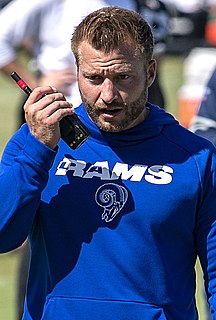A Quote by Galen Rowell
I think that cognitive scientists would support the view that our visual system does not directly represent what is out there in the world and that our brain constructs a lot of the imagery that we believe we are seeing.
Related Quotes
For centuries, we in the West have thought of ourselves as rational animals whose mental capacities transcend our bodily nature. In this traditional view our minds are abstract, logical, unemotionally rational, consciously accessible, and, above all, able to directly fit and represent the world. Language has a special place in thie view of what a human is - it is a privileged, logical symbol system internal to our minds that transparently expresses abstract concepts that are defined in terms of the external world itself.
Education is 'the guardian genius of our democracy.' Nothing really means more to our future, not our military defenses, not our missiles or our bombers, not our production economy, not even our democratic system of government. For all of these are worthless if we lack the brain power to support and sustain them.
As an organizer, I start from where the world is, as it is, not as I would like it to be. That we accept the world as it is does not in any sense weaken our desire to change it into what we believe it should be - it is necessary to begin where the world is if we are going to change it to what we think it should be. That means working in the system.
Today, when we look at a brain, we see an intricate network of billions of neurons in constant, crackling communication, a chemical labyrinth that senses the world outside and within, produces love and sorrow, keeps our hearts beating and lungs breathing, composes our thoughts, and constructs our consciousness.
I believe that in order for our democratic system to work as intended, the average person must have faith in their government. Citizens must believe that our system is working to represent them, and that it is capable of advancing issues like healthcare access, lowering prescription drug costs and improving infrastructure.
With any hallucinations, if you can do functional brain imagery while they're going on, you will find that the parts of the brain usually involved in seeing or hearing - in perception - have become super active by themselves. And this is an autonomous activity; this does not happen with imagination.


































